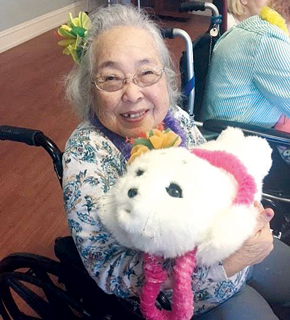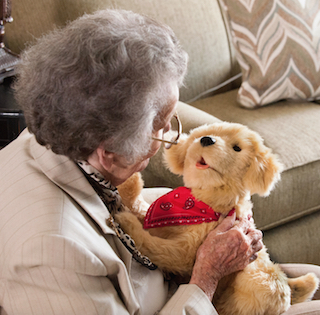
Robotic support pets may provide comfort and distraction for residents during the pandemic, but care providers should pay close attention to ensuring their disinfection, new research shows.
Eight robotic pets were tested for microbial contamination after being handled for 20 minutes by nursing home residents. The pets included Paro, the robotic baby harp seal, the Joy for All dog and cat, and Furby Connect, among others. Materials ranged from fur to soft plastic to solid plastic. All but two of the devices were found to have a microbial load above the acceptable thresholds after handling, and the identified bacteria all were potentially hazardous to human health, including Staphylococcus aureus.
The robots then were cleaned by researchers or care providers with an anti-bacterial spray, fur brushing and “vigorous cleaning” with anti-bacterial wipes. Cleaning was found to be effective, reported study lead Hannah Bradwell, a postdoctoral candidate at the University of Plymouth, England.

“Regardless of material type, previous microbial load or who carried out the cleaning procedure, all robots could be brought to well below acceptable [microbial] levels,” Bradwell said. Five of the eight robots had undetectable levels after cleaning, and the remaining three had minute, below-threshold amounts.
The takeaway? Companion robots may acquire significant levels of bacteria during normal use, the researchers wrote. “Our study has shown the strong requirement for considerations around infection control for these devices,” Bradwell said.
Full findings were published in PLOS One.




